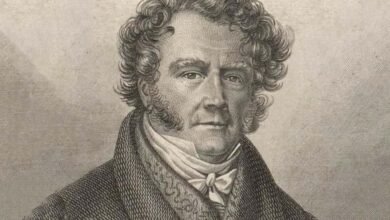Mahatma Jyotirao Phule: Architect of social equality and justice
By Doruvu Paul Jagan Babu: Assistant Chief Editor

On April 11, 2025, as we commemorate the 198th birth anniversary of Mahatma Jyotirao Phule, we honour a visionary whose relentless fight for equality reshaped India’s social fabric. Born in 1827 in Pune, Maharashtra, Phule—alongside his wife, Savitribai—ignited a revolution against caste oppression and gender inequality, laying the foundation for modern social justice movements. Their contributions, though monumental, have often been underrepresented in mainstream narratives, sparking calls for the Bharat Ratna to recognize their legacy. This article celebrates Phule’s life, addresses the suppression of their story, and draws inspiration for future generations.
A life forged in resilience
Jyotirao Phule was born into the Mali caste, considered low in the rigid caste hierarchy of 19th-century India. His family, originally named Gorhe, earned the surname Phule from their florist trade, a profession that brought modest prosperity but no social esteem. Orphaned by his mother at nine months and pulled from school to work on the family farm, Phule’s early life was marked by hardship. Yet, a neighbour’s recognition of his intellect led to his enrollment at the Scottish Mission High School in Pune, where he completed his English education in 1847. A humiliating incident at a Brahmin friend’s wedding in 1848—where he was insulted for his caste—crystallized his resolve to dismantle the caste system.
Pioneering education for all
Phule believed education was the key to liberation. In 1848, he founded India’s first school for girls in Pune, a radical act at a time when female education was unthinkable. H~~e personally taught his wife, Savitribai, to read and write, and she became the school’s first teacher, defying societal norms. By 1852, the couple had established three schools, also opening doors for lower-caste children, including Dalits. Their efforts faced fierce opposition—social ostracism forced them out of their family home—but they persisted, later founding schools for untouchables and an orphanage to combat female infanticide. Phule’s vision of universal education as a tool for empowerment inspired later reformers like Dr. B R Ambedkar.
Satyashodhak Samaj: A movement for truth
In 1873, Phule established the Satyashodhak Samaj (Society of Truth Seekers), a groundbreaking organization open to all castes and religions. It aimed to dismantle Brahminical hegemony by challenging the Vedas and promoting rational thinking. Phule coined the term “Dalit” to unite Shudras and Ati-Shudras, asserting that the oppressed were India’s true indigenous people, subjugated by foreign Aryan invaders. His writings, like Gulamgiri (1873) and Shetkaryacha Asud (1883), exposed caste exploitation and called for a society based on equality. The Samaj’s inclusive ethos—by 1876, it had 316 members—set a precedent for collective resistance against injustice.
Advocacy for women and widows
Phule’s fight extended beyond caste to gender equality. He championed widow remarriage, a taboo in his era, and opened an ashram for young widows, offering them dignity and safety. Alongside Savitribai and friend Sadashiv Ballal Govande, he established an infanticide prevention center, addressing the plight of women forced into desperate acts. These initiatives were not mere charity but a direct challenge to patriarchal norms, emphasizing women’s right to education and autonomy. Savitribai’s role as a teacher and reformer complemented Phule’s vision, making them a formidable duo in the struggle for social justice.
The Bharat Ratna demand: A call for recognition
The Maharashtra Legislative Assembly’s unanimous resolution in March 2025, urging the Bharat Ratna for Jyotirao and Savitribai Phule, reflects a growing demand to honor their contributions. Chief Minister Devendra Fadnavis noted that only Phule and Mahatma Gandhi earned the title “Mahatma,” underscoring their unparalleled impact. Supporters argue that the Bharat Ratna would affirm their role in shaping an inclusive India, especially as women and marginalized communities thrive in fields like education and politics—progress rooted in the Phules’ pioneering work. This call resonates with public sentiment, amplified on platforms like social media, where their legacy is celebrated annually.
Suppression in historical narratives
Despite their transformative impact, some scholars argue that the Phules’ contributions have been sidelined in mainstream history. The focus on upper-caste reformers or nationalist movements often overshadows their grassroots revolution. Phule’s critique of Brahminical dominance and his rejection of Vedic authority made him a polarizing figure, potentially contributing to his marginalization in historical texts. His emphasis on the subjugation of indigenous peoples by Aryans challenged dominant narratives, earning resistance from orthodox circles. This suppression underscores the need to amplify their story, ensuring future generations draw inspiration from their courage and vision.
Inspiring future generations
Mahatma Phule’s life offers timeless lessons: education empowers, unity transcends division, and justice demands action. His belief that knowledge is the “third eye” to see through oppression remains relevant in today’s fight against inequality. For young Indians, Phule’s defiance of societal norms at great personal cost is a call to challenge injustice boldly. His and Savitribai’s partnership exemplifies collaboration rooted in shared ideals, urging us to build inclusive communities. As we honor him on April 11, let’s commit to universal education and equality, ensuring his dream of a just society lives on.
Phule’s legacy is not just history—it is a blueprint for progress. As demands for the Bharat Ratna grow, let us celebrate and amplify his and Savitribai’s contributions, inspiring a future where every individual, regardless of caste or gender, has the opportunity to thrive.









